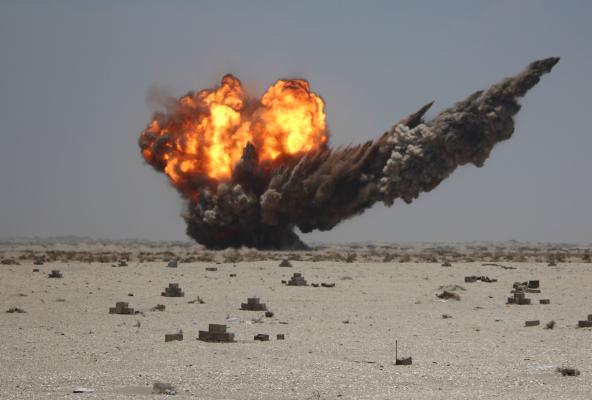A year has passed since the Saudi-led Arab coalition launched a war in Yemen after the legitimate government was overthrown!
The question “What is the result?” arises. Do we say that Sana’a was not liberated and that the coalition did not eradicate enemy forces? Or do we say that the coup and Iran’s project to create a state south of Saudi Arabia which would threaten the entire Gulf and change the regional balance equation were both failures?
Let us compare the war in Yemen to the war in Afghanistan. The United States declares war there after the September 11 attacks that took place in 2001, i.e. more than fourteen years ago. One can say it destroyed Al-Qaeda and removed the Taliban government during this period. By the standards of the war in Afghanistan, Arab coalition forces have achieved more in one year than the Americans did in a decade and a half. The forces have accomplished similar results and in addition to this they actually seized more Yemeni areas and provinces than their opponents.
This does not mean that the forces annihilated the former President Ali Saleh’s forces or Houthi militias. In addition to this, Al-Qaeda who has been established there since before the war, is still alive and is attacking legitimate and coalition forces. A year later, there is no doubt that the political and field gains reduced the number of dissenting and sceptical voices as it is natural that people hate wars in our region that is afflicted with disaster.
When the first air strikes took place this time last year, the Houthis and Saleh’s forces had captured all of Yemen. The rebels announced the formation of their government and their rejection of Security Council resolutions. Their existence had nearly become a reality for everyone to accept. The nightmare became a reality and Yemen became part of Iran’s orbit, besieging the Gulf states from the south after they were besieged by Iraq and Syria from the north. All arsenals seized from the Yemeni army including Scud missile systems capable of threatening Saudi cities fell into the hands of the rebels. However, the war immediately destroyed the political system established by the Houthis and forces loyal to Saleh, and prevented Iran from creating a situation similar to Iraq and Syria where it sent forces belonging to the Revolutionary Guards, Hezbollah militias and Iraqi rebels.
The coalition besieged Yemeni airspace and ports which have relied on international inspection forces to be effective, and during the last year American, French and Australian naval units turned away ships loaded with weapons from Iran to its allies but did not prevent ships carrying humanitarian aid from reaching Yemeni land.
Those who monitor the regional situation believed that war was the only option to prevent the Revolutionary Guard and Hezbollah from occupying Yemen and turning it into a large regional war front between Saudi Arabia and Iran.
The reclamation of most Yemeni provinces during the war this year is a major military achievement in a rugged country where tribal subdivisions exist and the terrain is similar to that of Afghanistan. The war is not over and continues at a slower pace as the legitimate government forces advance upon the capital Sana’a. This is the final battle and it is for this reason that Saleh and the Houthis have agreed to negotiations in Kuwait and sent a delegation representing them to the Saudi capital.
Everyone hopes that there will be signs of a political solution to end the war, that everyone will work towards restoring legitimacy and implement Security Council resolutions.
Before the coup, the Yemeni people had realised their political project under the auspices of the UN. They had also approved the election of a transitional government and had started to write the constitution. That was until the ousted president and Houthi militias dared to occupy Sana’a and arrest members of the elected government.
It is hoped that the negotiations will turn the clock back, adopt the international solution and complete the political transition in order to set up a parliamentary system that represents everyone and that will later elect its leadership under the auspices of the United Nations once again. Then the Yemeni crisis will come to an end.
The rebels thought that they could seize power in Yemen and believed that Saudi Arabia and its allies would not dare to deter them by military force. The fact of the matter is that the rebels were not only mistaken in their calculations, but were the cause of alarm bells ringing in the Gulf region where the governments of the Gulf met and agreed to confront Iran and its allies in Yemen, and to send a clear message to the Iranian leadership and the international community, that they will not accept the policy of thuggery practiced by the Iranian government in the Middle East.
Many were surprised by the military capabilities of Saudi Arabia and the UAE that allowed them to fight a full-scale war whilst they worked on the ground to rebuild and train Yemeni forces at the same time.
For this reason, the war in Yemen represents multiple confrontations with different aims; the first is to prevent the establishment of a militia system in Yemen that is similar to Hezbollah in Lebanon. The second is to protect southern Saudi Arabia from a hostile front which would extend the duration of the war to years or decades to come. The third is to send a message to large countries to resist submitting to the Iranian expansion project in the region.
